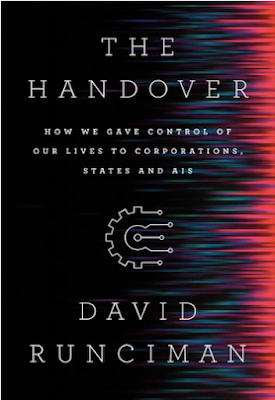Donald Trump won the presidency with fewer votes than his opponent?"We’re a republic, not a democracy."State Republican parties in Wisconsin, North Carolina, and other states gerrymandered themselves into supermajorities?"We’re a republic, not a democracy."Forty-one senators block laws favored by 59? A single senator blocks promotions across the Defense Department?"We’re a republic, not a democracy."Florida voters restored voting rights to felons, only to see the reform disregarded by the state legislature?"We’re a republic, not a democracy."States rule that Trump is an insurrectionist under the terms of the Fourteenth Amendment, barring him from their ballots?"Let the people decide!"There’s not much use in pointing out hypocrisy in the Trump era. Trump and his core supporters are governed only by the Cartman principle—“I do what I want!”—and to that principle, they are always faithful …
How should people who are serious about democratic principles respond to this avalanche of bad faith? Democratic ideals don’t cease to be true just because they can be exploited by dishonest actors. Yet democracy also cannot become an optional principle that authoritarians can use when it suits them and then discard without consequences when it becomes an obstacle to their goals. Democratic systems have constitutions and constitutional remedies precisely to protect themselves against those who toggle in this way between breaking inconvenient rules and demanding the benefit of favorable ones.
A key provision of the suddenly famous Section 3 of the Fourteenth Amendment is that it applies only to those who previously swore an oath of office. It’s not a general punishment for revolts against legal authority. It is a highly targeted penalty applied to those who—like Trump—try to play the system both ways, swearing to execute the laws and then rebelling against the laws they swore to enforce…
… [R]emember that old joke about the man who murdered both of his parents and then asked for mercy as an orphan? It needs to be replaced by a new joke about the ex-president who trashed democracy when he had the power, and then pleaded for the protection of democracy so he could have one more chance to trash democracy again. —David Frum
David goes on to remind us that Donald Trump argued vehemently—ad nauseum—that Barack Obama was constitutionally ineligible to run for President because he was "born in Kenya," and that, likewise, Ted Cruz was also POTUS-ineligible given that he'd been born in Canada. And most recently, in 2020, Trump repeatedly sought to have millions of Covid-aftermath mail-in votes invalidated (on equally spurious, unsuccessful grounds).
SCOTUS faces a real political pickle with this one. Although, Trump's "blanket immunity" appellate assertions also loom consequentially large.
UPDATE: THE DAILY DONALD DESPERATION
Lordy Mercy. Just for grins, scroll back through the prior three posts. I guess we're going to see this incoherent bleating multiple times per day until next November.
UPDATE: LAWRENCE LESSIG WEIGHS IN
Donald Trump is an astoundingly dangerous candidate for president. He is a pathological liar, with clear authoritarian instincts. Were he elected to a second term, the damage he would do to the institutions of our republic is profound. His reelection would be worse than any political event in the history of America — save the decision of South Carolina to launch the Civil War.
That fact has motivated many decent lawyers and law professors to scramble for ways to ensure that Trump is not elected. On Tuesday, the Colorado Supreme Court gave these lawyers new hope by declaring that Section 3 of the 14th Amendment bars Donald Trump from the Colorado ballot. That decision will certainly reach the United States Supreme Court as quickly as any. And if that court is to preserve its integrity, it must, unanimously, reject the Colorado Supreme Court’s judgment. Because Section 3 of the 14th Amendment does not apply to Donald Trump…
In a nation overpopulated with bloviating Barstool ConLaw "experts," Lessig has major legit chops.
RANDOM ERRATUM
The Power of Photoshop Compels Me...
CODA
Harks to this post.
__________




































